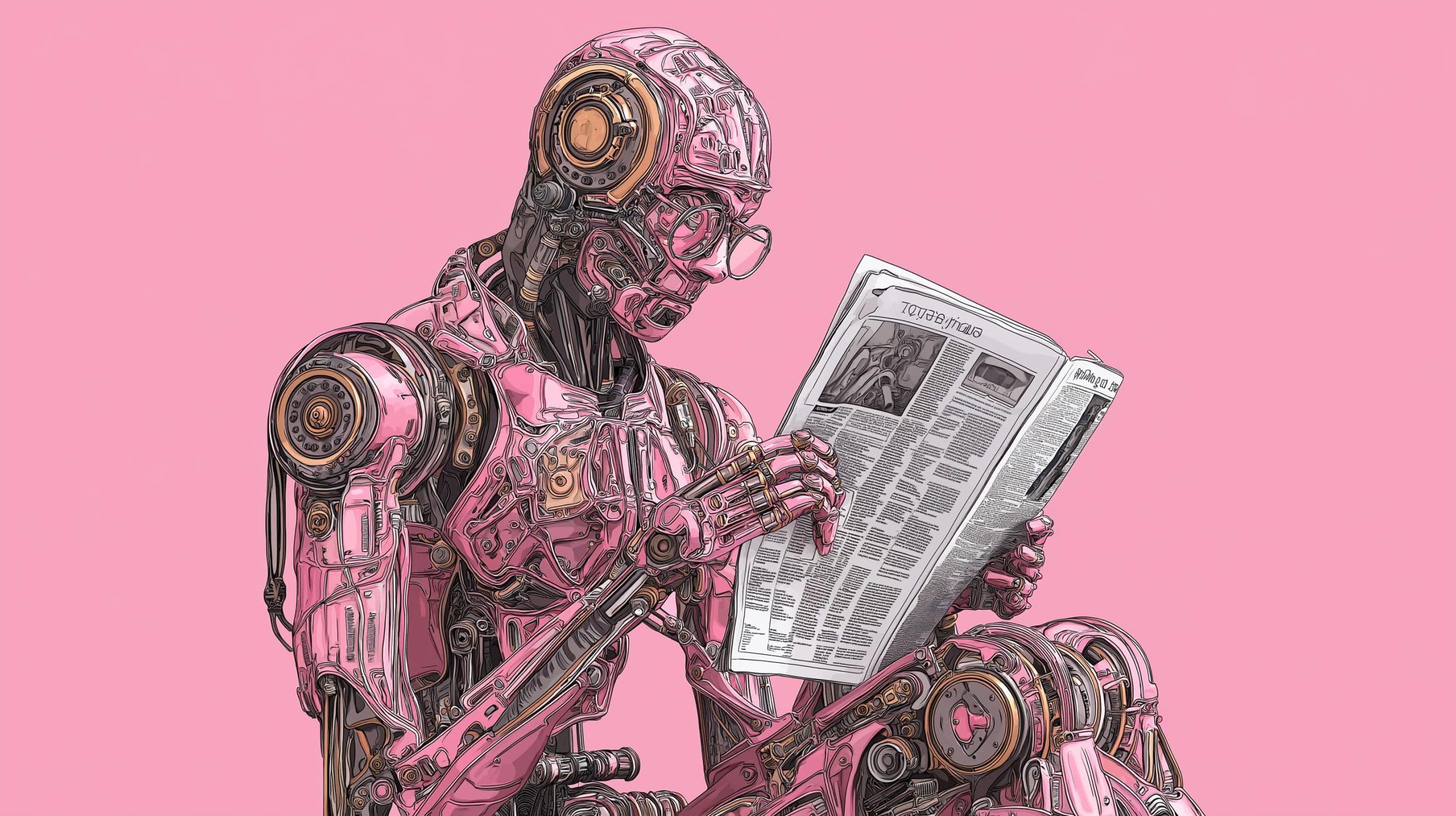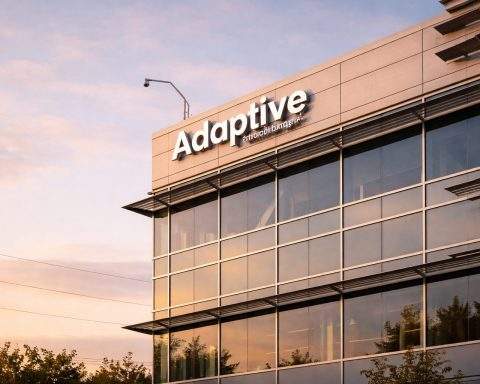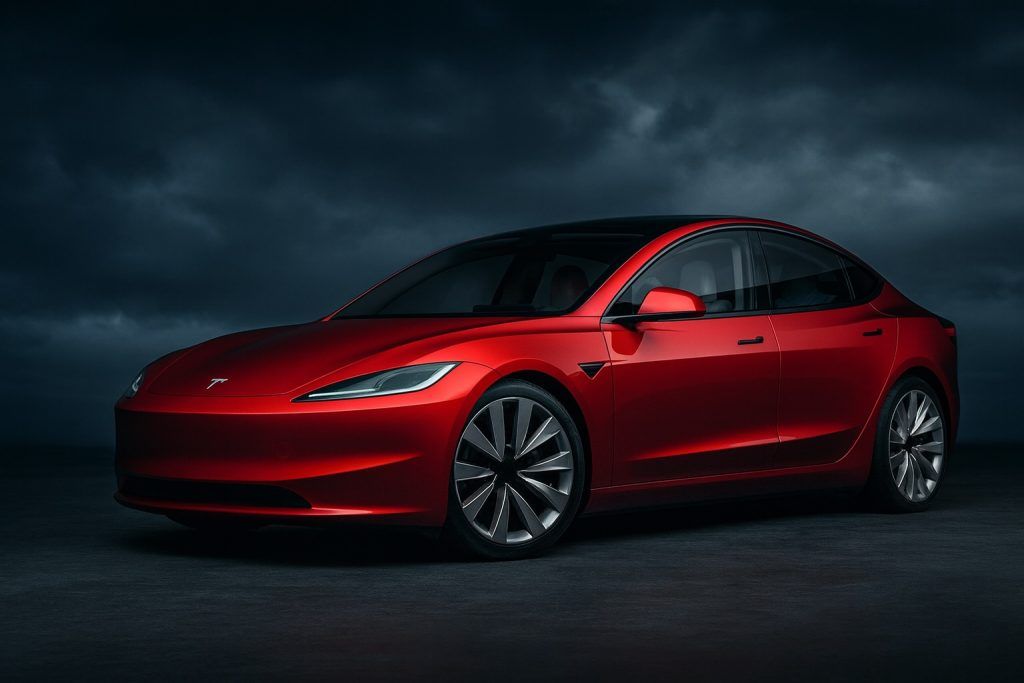- OpenAI announced it will open its first India office in New Delhi and launched a ₹380/month ChatGPT plan in India.
- OpenAI Chief People Officer Julia Villagra departed on August 22, 2025, amid an unprecedented AI talent war.
- Nvidia paused production of its H20 AI chip for China on August 21, 2025, instructing Amkor Technology, Samsung, and Foxconn to halt related work.
- Nvidia CEO Jensen Huang visited Taiwan on August 22, 2025, meeting with TSMC leadership in Taipei.
- South Korea announced a 2026 R&D budget boost to ₩35.3 trillion (about $25.2 billion), a nearly 20% increase targeting AI.
- Google expanded its AI Mode in Search to over 180 countries on August 21, 2025, with live web browsing, task execution, and partnerships with OpenTable and Ticketmaster.
- Meta Platforms paused AI hiring after bringing on more than 50 top researchers in recent months, with an August 21, 2025 pause described as organizational planning.
- Just Eat piloted robot couriers in Zurich on August 21, 2025, using four-legged robots from Swiss startup RIVR capable of speeds up to 15 km/h, with plans to expand to other European cities by year-end.
- IBM and NASA unveiled Surya, an open-source AI foundation model for forecasting solar storms, on August 21, 2025, improving solar flare classification by 16% and open-sourcing via Hugging Face.
- Proton rolled out Lumo 1.1, a privacy-first AI assistant with zero-access encryption on August 21, 2025, claiming 170% better context understanding than the previous version.
OpenAI Expands into India Amid Talent Shake-ups
OpenAI’s Global Push: ChatGPT maker OpenAI announced it will open its first India office in New Delhi, aiming to deepen its reach in its second-largest user market reuters.com. The company has already set up a legal entity in India and begun hiring locally. India is critical for OpenAI’s growth – it just launched a ₹380/month (≈$4.60) ChatGPT plan there this week to attract more of the country’s nearly 1 billion internet users reuters.com. OpenAI faces headwinds too: Indian publishers have sued it for allegedly using their content to train AI without permission, though the company denies wrongdoing reuters.com. “Opening our first office and building a local team is an important first step in our commitment to make advanced AI more accessible across the country and to build AI for India, and with India,” CEO Sam Altman said in a statement reuters.com – underscoring a pledge to tailor AI to local needs. OpenAI will also confront stiff competition in India’s AI arena, as rivals like Google’s Gemini and startup Perplexity have rolled out advanced AI services free for many Indian users reuters.com to quickly grow their market share.
Talent Wars and Turnover: Even as it expands, OpenAI is navigating internal churn in the race for AI talent. Its Chief People Officer Julia Villagra departed the company on Aug 22, the firm confirmed reuters.com. Villagra, who had been promoted to CPO in March, is leaving to pursue her passion for using art and storytelling to explain the transition to AGI (artificial general intelligence) reuters.com. OpenAI’s leadership is reallocating her duties to other executives while seeking a replacement reuters.com. Her exit comes amid an “unprecedented talent war” in AI – Microsoft-backed OpenAI and rivals are vying for top researchers with eye-popping offers. Meta’s CEO Mark Zuckerberg has even dangled $100 million signing bonuses to lure away OpenAI’s AI researchers reuters.com. OpenAI itself is reportedly considering a new share sale valuing the startup at up to $500 billion (up from $300B) to reward employees and fund its rapid growth reuters.com. The frenetic competition for AI expertise highlights a broader trend: while cutting-edge AI firms soar, concerns grow about their societal impact. A recent Reuters/Ipsos poll found 71% of Americans are worried that AI could “putting too many people out of work permanently” reuters.com – a fear that frames the backdrop as companies like OpenAI both capitalize on AI and grapple with its human implications.
Google Rolls Out AI-Powered Search Worldwide
Smarter Search Goes Global: Google took a major step in the AI search race by expanding its new “AI Mode” in Search to over 180 countries on August 21 blog.google. This experimental AI-powered search experience – now available in English globally – adds more interactive, “agentic” capabilities to Google’s results. In AI Mode, users can ask complex questions or tasks and Google’s AI will not just answer, but help get things done. For example, you can request a dinner reservation with specific timing, location, cuisine, and party size constraints, and the AI will “streamline this process,” searching multiple booking platforms in real time to find restaurants that meet your criteria blog.google. It then presents available options and links you directly to the booking page to finalize the reservation – essentially acting as a virtual concierge. Under the hood, Google says this feature taps live web browsing via DeepMind’s Project Mariner and direct integrations with partners like OpenTable, Ticketmaster and others blog.google. By rolling out these advanced generative AI features in Search, Google is racing to redefine how we search online – moving from just answering queries to performing tasks on our behalf. The initial launch is limited; for instance, U.S. subscribers of Google’s AI products get first access to some personalized features. But the global expansion shows Google’s confidence in the feature’s maturity. Analysts note this comes as competition heats up – Microsoft’s Bing, OpenAI’s ChatGPT and others are vying to provide AI-assisted search and services – and Google is leveraging its massive user base to maintain its search dominance with new AI smarts.
Meta Freezes AI Hiring, Citing “Organizational Planning”
Hiring Pause After a Talent Blitz: Meta Platforms (parent of Facebook) has paused hiring in its AI division after an aggressive recruitment spree that brought on more than 50 top researchers and engineers in recent months reuters.com. The Wall Street Journal first reported the hiring freeze on Aug 21, raising questions about whether Meta was hitting the brakes on its AI ambitions. Meta quickly downplayed the move, framing it as a temporary measure. “All that’s happening here is some basic organizational planning – creating a solid structure for our new superintelligence efforts after bringing people on board and undertaking yearly budgeting and planning,” a Meta spokesperson told Reuters in an emailed statement reuters.com. In other words, Meta suggests it is regrouping internally to absorb its influx of AI talent and to map out research priorities (and budgets) for its next-generation AI projects. Meta’s CEO Mark Zuckerberg has made clear that AI is a top strategic priority – the company recently stood up a generative AI group and has been open-sourcing large language models (like LLaMA 2) to drive innovation. Insiders say the hiring pause is not a sign of retreat, but rather a breather to avoid duplication of roles and to ensure the new hires are organized effectively. Meta’s move comes as Big Tech firms juggle AI investment with cost discipline; notably, the company joined others like Microsoft in earlier layoffs, cutting non-AI roles to free up resources for AI development. The brief freeze, therefore, appears to be a strategic pit stop in Meta’s AI journey, not a U-turn.
Chip Wars: Nvidia Caught Between Washington and Beijing
Nvidia’s H20 Chip on Hold: The global tug-of-war over AI chips escalated, ensnaring Nvidia – now the world’s most valuable semiconductor firm. On Aug 21, reports emerged that Nvidia told suppliers to suspend production of its H20 AI chip – a chip tailored for the Chinese market – due to U.S. export curbs reuters.com. Arizona-based Amkor Technology, which handles advanced packaging for the H20, and South Korea’s Samsung, which supplies its high-bandwidth memory, were both instructed to halt work reuters.com. Nvidia also asked manufacturing partner Foxconn to stop all work related to the H20, sources told Reuters reuters.com. “We constantly manage our supply chain to address market conditions,” an Nvidia spokesperson said, declining to elaborate reuters.com. The company stressed that “the H20 is not a military product or for government infrastructure” in an effort to downplay U.S. security concerns reuters.com.
Geopolitics Hits the Ground: Nvidia’s moves come amid escalating U.S.–China tech tensions that directly affect its business. The H20 was Nvidia’s workaround chip to comply with 2023 U.S. export rules – a slightly less powerful version of its cutting-edge AI processors allowed for Chinese customers. It only received U.S. approval to resume sales in July, but almost immediately ran into headwinds in China: Beijing’s cyber regulator and state media alleged Nvidia’s chips could pose “security risks” and Chinese authorities warned tech firms (like Tencent and ByteDance) about reliance on the H20 reuters.com. With political pressure mounting on both sides, Nvidia appears to be tapping the brakes on H20 supply until there’s clarity. Meanwhile, Nvidia’s CEO Jensen Huang made a high-profile visit to Taiwan on Aug 22, meeting with chipmaker TSMC’s leadership in Taipei reuters.com. “My main purpose coming here is to visit TSMC,” Huang told reporters, emphasizing the long-standing partnership as Nvidia navigates the storm reuters.com. Huang also revealed Nvidia is in talks with the U.S. government about offering China a successor to the H20, but “it’s up to… the U.S. government, and we are in dialogue with them, but it is too soon to know” if a next-gen China-bound chip will be allowed reuters.com. This delicate dance underscores how AI hardware has become a flashpoint: Washington is wary of cutting-edge chips fueling China’s AI advances, while Nvidia is caught in the middle. In fact, earlier this month the U.S. administration struck a deal requiring Nvidia (and AMD) to pay the U.S. government 15% of any revenue from advanced AI chip sales to China reuters.com – effectively a tax to allow continued limited exports. Between new U.S. rules and Chinese scrutiny, Nvidia’s China business hangs in the balance, with potentially significant impact on global AI development if this chip Cold War intensifies.
South Korea Boosts AI R&D Spending to Record Levels
Massive Investment Plan: South Korea is making a bold bet on its high-tech future. On Aug 22, newly installed President Lee Jae-myung announced plans for a record budget increase in R&D, largely aimed at artificial intelligence. The government will boost research spending by nearly 20% to ₩35.3 trillion (about $25.2 billion) in 2026 – the largest annual R&D investment in the country’s history reuters.com. Lee stressed that ramping up funding for AI and other critical technologies is essential for Korea to stay competitive. In televised remarks, he reflected on Korea’s economic journey, noting it’s “the only country in the world that was liberated from a colony and succeeded in both industrialisation and democratisation, and that was because we invested in the future.” reuters.com This nod to history framed the AI push as the next chapter in Korea’s development saga. The hefty 2026 R&D budget will specifically target AI technology development, seeking to foster innovation in both the public and private sectors.
Policy Reversal and Global Context: Lee’s plan notably reverses the R&D spending cuts made by his predecessor’s administration reuters.com. (Former President Yoon Suk Yeol was ousted, and Lee’s new government is pivoting to a more pro-investment stance in tech.) By restoring and adding to the budget, South Korea signals it doesn’t want to fall behind in the global AI race. The move comes as other nations are also stepping up: for example, the EU’s AI Act is coming into force, and countries like the US, China, and Japan are pouring funds into AI research and chip manufacturing. South Korea, home to tech giants like Samsung and LG and a vibrant startup scene, is keen to be a leader in AI applications from semiconductors to smart factories. This record funding will support everything from foundational AI research to industry adoption and training of AI talent. In the broader geopolitical lens, Seoul’s announcement is a reminder that state support for AI is ramping up worldwide – and that the economic powers who invest wisely now may reap the biggest rewards in innovation and growth in years to come.
AI Robots Hit the Streets – and the Skies
Robotic Food Couriers in Europe: The march of the robots into daily life continued, quite literally, on city sidewalks. In Zurich, Switzerland, one of the world’s largest food delivery platforms Just Eat began piloting robot couriers for home deliveries on Aug 21 swissinfo.ch. The trial involves agile four-legged robots (equipped with wheels as well) developed by Swiss robotics startup RIVR. These courier bots can climb stairs and navigate complex urban environments, using AI and sensors to avoid obstacles like trash cans, curbs, and pedestrians swissinfo.ch. For the first month, the self-driving delivery droids will be closely supervised as they ferry orders from a local restaurant to nearby customers swissinfo.ch. In a second phase, the plan is to monitor them remotely from a control center, truly letting them roam independently. RIVR says the machines can reach speeds up to 15 km/h and are built to withstand rain or snow, making them viable for all-weather service swissinfo.ch swissinfo.ch. “Together with Just Eat Takeaway.com we are working on a new generation of robotic deliveries, starting in Switzerland,” RIVR said, noting plans to roll out many more robots in other European cities by the end of the year, with potential expansion into retail and parcel delivery swissinfo.ch. The sight of robots scurrying with takeout orders – once sci-fi – is fast becoming reality, highlighting how AI-powered robotics are tackling tasks from last-mile logistics to indoor cleaning.
“Robot Olympics” and Drones: The robo-delivery debut comes on the heels of other headlines in AI robotics. In China, a “World Humanoid Robot Games” in mid-August drew 280 teams from 16 countries to test bipedal bots in races, football matches and factory tasks – yielding both face-plants and breakthroughs reuters.com reuters.com. Organizers said the event provided valuable data to improve practical robot applications, and it showcased China’s heavy investment in humanoid robots as the nation grapples with an aging workforce reuters.com reuters.com. Elsewhere, companies are exploring AI in the skies: Alphabet’s Wing and Amazon have ongoing trials for drone delivery, and just this week IBM’s CEO discussed using AI to manage swarms of drones for faster shipping. From factories to front doors, robotics and AI are converging rapidly. Europe in particular touts its leadership in robotics research (Switzerland, for one, is a known hub), and many Swiss observers see the Just Eat pilot as a precursor to broader adoption of service robots. As these machines learn to safely coexist with humans in open environments, regulators are watching closely. Successful trials in Zurich and beyond could open the floodgates to mainstream robot helpers – fundamentally changing how goods and services move in our cities.
AI and the Workforce: Cautionary Voices
Debating AI’s Impact on Jobs: As AI adoption accelerates, business leaders are openly debating how it affects employees. In a candid conversation on Aug 21, Amazon Web Services CEO Matt Garman pushed back on a trend he’s hearing in boardrooms – replacing entry-level staff with AI. Garman didn’t mince words, calling the idea that AI tools can entirely substitute junior employees “the dumbest thing I’ve ever heard.” theregister.com He noted some executives believe they can “replace all of our junior people” with generative AI, but he strongly advises against it. Junior staff are “probably the least expensive employees you have” and, importantly, the most immersed in new tech like AI, Garman argued theregister.com. Eliminating those roles would leave companies with no pipeline of grown talent – “How’s that going to work when ten years in the future you have no one that has learned anything?” he warned, stressing the need to keep hiring and training young professionals in the AI era. Garman’s point echoes a broader sentiment among some tech leaders that AI should augment, not replace, human workers (at least not en masse). He even advised that education should focus more on teaching people how to learn and think, given AI’s rapid rise, so that new workers can continually adapt alongside AI tools theregister.com.
Job Cuts and Re-skilling: Not everyone in industry has heeded such warnings. A number of companies have cited AI advances as a reason to streamline roles. Over the summer, the Japan-based parent company of Indeed.com and Glassdoor announced it will cut about 1,300 jobs (6% of its workforce) to refocus on AI-driven operations reuters.com reuters.com. Many of those layoffs hit HR and R&D staff, and the company’s memo explicitly said it must adapt as “AI is changing the world.” reuters.com Similarly, giants like IBM and Accenture have in recent years announced plans to pause hiring for certain back-office jobs, anticipating AI will handle more administrative work. This week’s developments capture that dichotomy: even as AI creates new roles and entire new products, it also threatens to automate tasks traditionally done by humans. Policymakers are taking note. In the U.S., the Biden (formerly Trump) administration has been meeting with tech CEOs about AI’s labor impact, and some European officials have floated ideas like “robot taxes” on companies that heavily automate. For now, the private sector seems to be self-policing through voices like AWS’s Garman. His blunt message – that blindly cutting junior workers for short-term efficiency is bad business – provides a counter-narrative to the hype. It’s a reminder that human capital and AI need not be in zero-sum conflict, and that the smartest companies may be those that upskill their people to work with AI, rather than view AI as a wholesale replacement for people.
Breakthroughs in AI Research and Ethics
“Space Weather” Forecasting with AI: Not all AI news was business and politics – there were also leaps in scientific research. IBM and NASA unveiled a new open-source AI foundation model on Aug 21, aimed at predicting solar storms that can disrupt satellites and power grids satellitetoday.com. The model, named Surya, is trained on high-resolution solar observation data to anticipate how solar activity will affect Earth and space-based technology. Early tests show Surya improved the accuracy of classifying solar flares by 16% compared to prior methods satellitetoday.com. “Think of this as a weather forecast for space,” explained Juan Bernabé-Moreno, IBM Research’s director in Europe, “Just as we work to prepare for hazardous weather events, we need to do the same for solar storms. Surya gives us unprecedented capability to anticipate what’s coming and is not just a technological achievement, but a critical step toward protecting our technological civilization from the star that sustains us.” satellitetoday.com By open-sourcing Surya via Hugging Face, IBM and NASA are enlisting the global science community to improve it further – a nod to transparency and collaboration in AI research. The development also highlights AI’s growing role in tackling complex real-world problems – in this case, safeguarding infrastructure from cosmic events – illustrating that innovation in AI is reaching the heavens (literally).
Privacy and AI Tools: On the ethics front, companies like Proton (known for its encrypted email service) are pushing privacy-first AI alternatives. Proton this week rolled out Lumo 1.1, an upgraded AI assistant that uses zero-access encryption to ensure user queries remain confidential proton.me proton.me. The assistant offers capabilities similar to big-tech AI chatbots but promises that Proton itself can’t read your conversations – an approach geared toward users wary of sharing data with corporate AI. Proton claims the new Lumo is 170% better at understanding context than the previous version engadget.com, requiring fewer follow-up questions. While not as high-profile as a Google or OpenAI product, Proton’s Lumo underscores an emerging trend: demand for ethical, transparent AI. From Europe’s AI Act to grassroots tech movements, 2025 has seen a strong push to bake principles like privacy, bias mitigation, and accountability into AI systems. As generative AI becomes ubiquitous, we’re likely to see more “AI for good” initiatives and voluntary codes of conduct – some backed by law, others by market demand – to ensure these powerful technologies are deployed responsibly. In short, alongside the headline-grabbing corporate news, the period of Aug 21–22 also showed the AI community reflecting on how AI should evolve in harmony with societal values, not just in pursuit of profit or power.
Sources: Reuters, Bloomberg, Reuters (Yahoo Finance), TechCrunch, The Register, Swissinfo, Google Blog, IBM/NY Times reports reuters.com reuters.com blog.google reuters.com reuters.com reuters.com swissinfo.ch theregister.com satellitetoday.com. (All information is drawn from reports and press releases dated Aug 21–22, 2025, to ensure accuracy and recency.)









